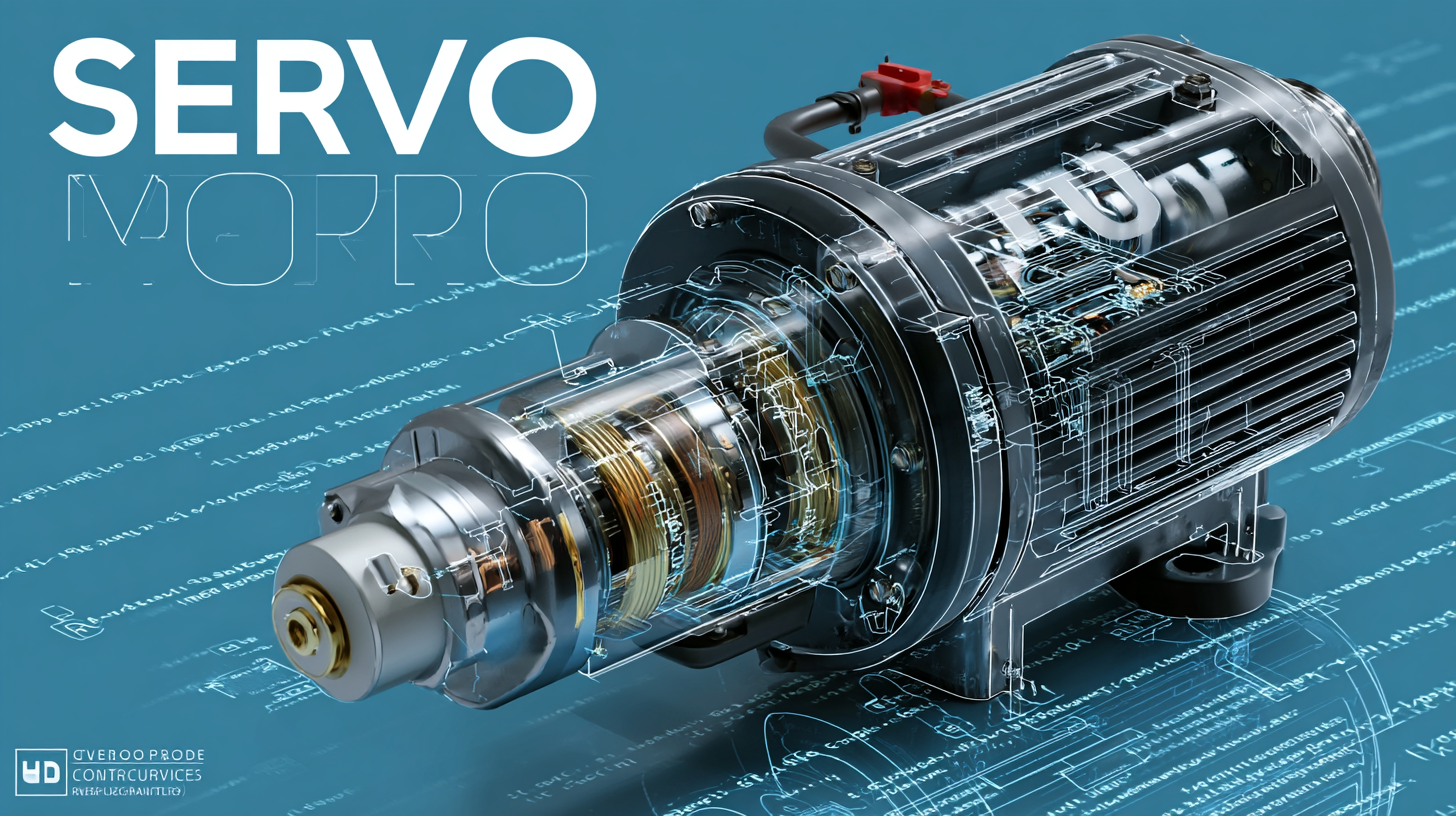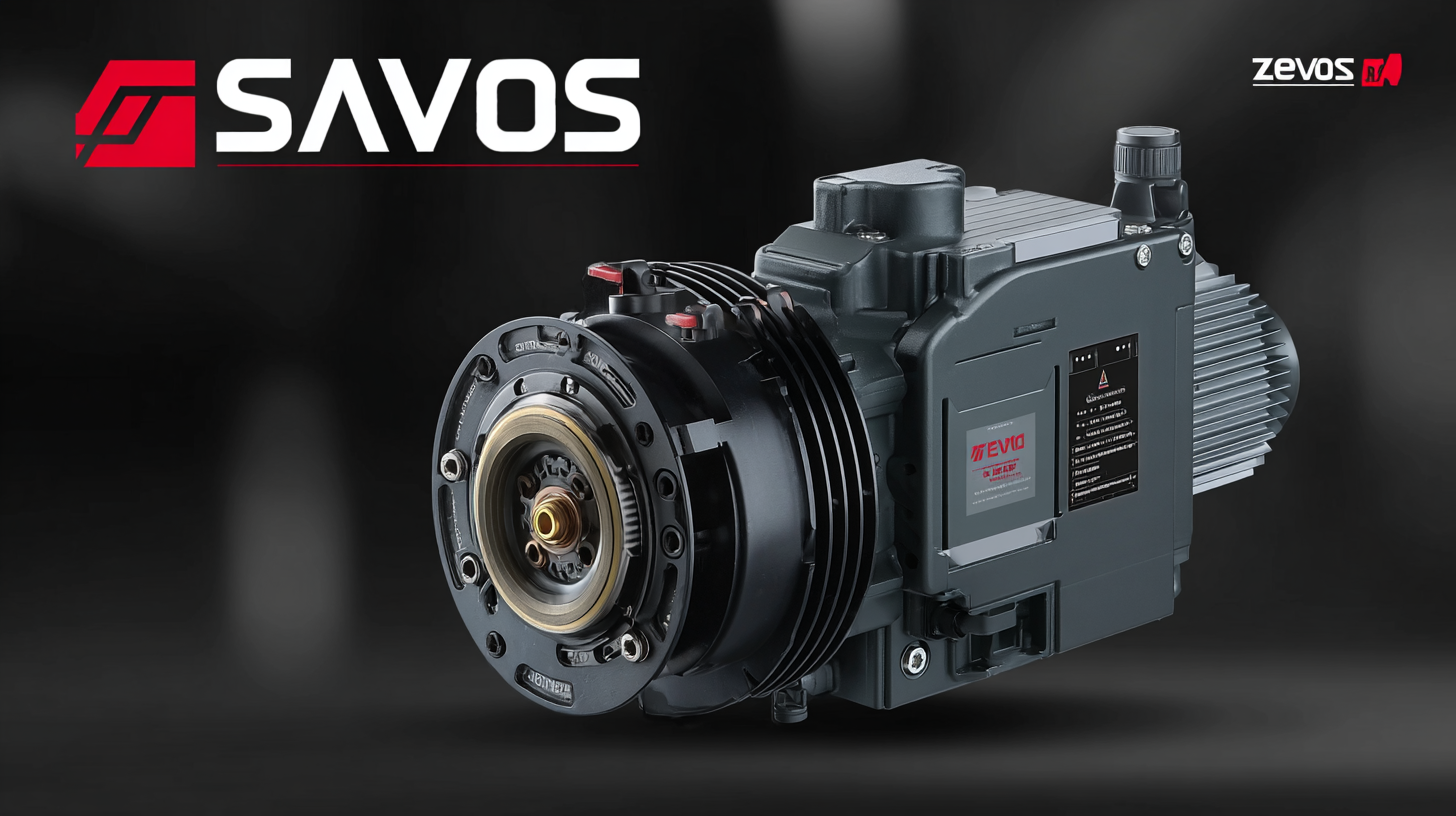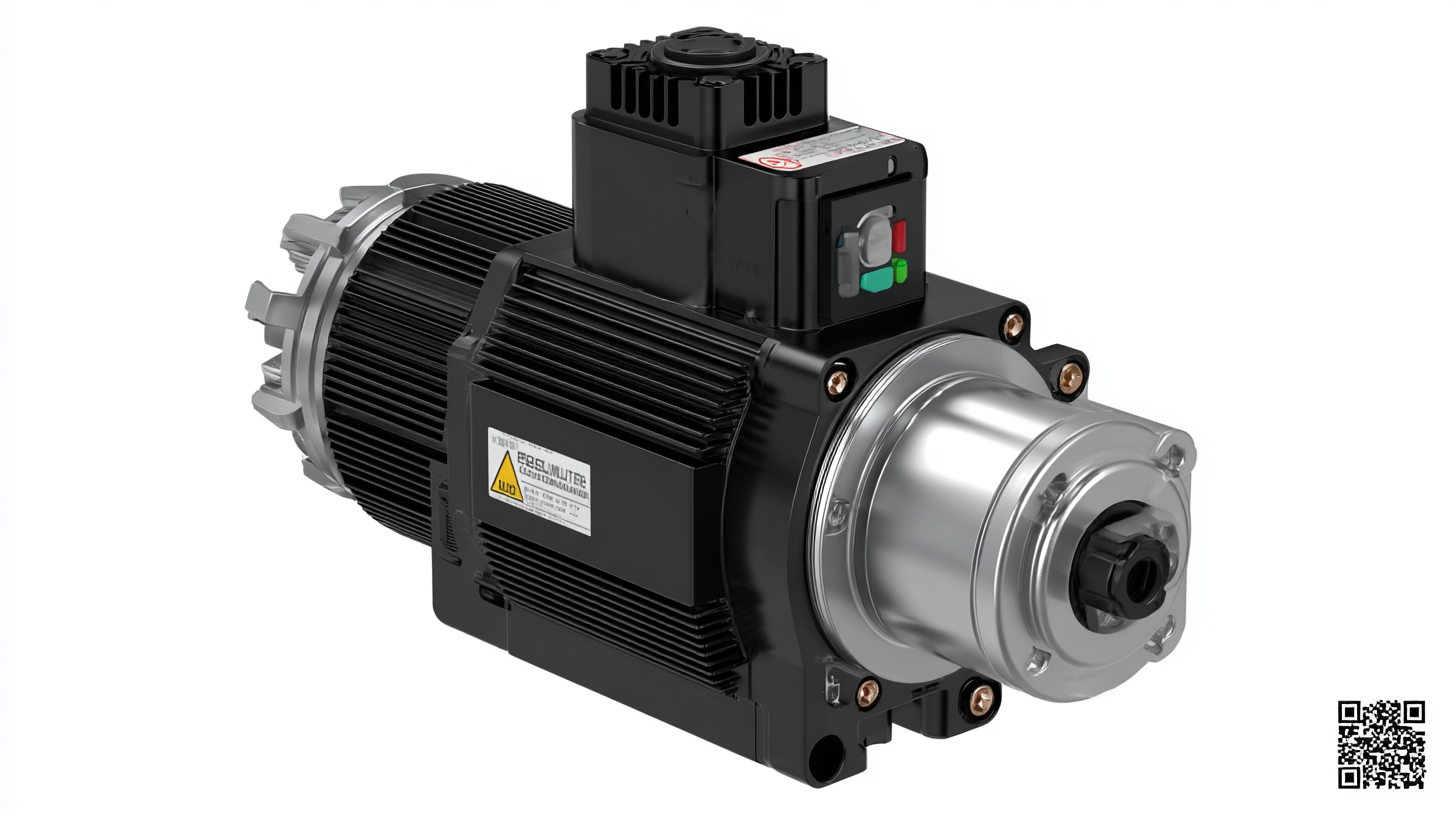
-
Home
-
Products
-
Application
-
Documents
-
News
-
Blog
-
Blog
-
Sinsegye
Leave Your Message
-
Wechat OA

-
 Baijia Hao
Baijia Hao



 Baijia Hao
Baijia Hao

In today's rapidly evolving manufacturing landscape, the role of the Industrial Servo Motor has become increasingly pivotal, especially for factories aspiring to rank among the top exporters globally. As industries strive for excellence, understanding the compliance of these motors with prevailing manufacturing standards is essential for ensuring quality, efficiency, and reliability in production processes. Industrial Servo Motors not only enhance precision in automation but also align with the stringent regulations and benchmarks set forth in the industry. This blog will delve into the importance of adhering to these standards, exploring how compliance not only bolsters a factory's reputation but also boosts its competitiveness in the global market. By examining the key attributes that make Industrial Servo Motors compliant, manufacturers can better navigate the complexities of international exports while maintaining high performance and safety standards in their operations.

Industrial servo motors play a crucial role in modern manufacturing processes, offering precision and efficiency across various applications. In a report by MarketsandMarkets, the global industrial servo motor market is expected to grow from $7.54 billion in 2020 to $11.29 billion by 2025, demonstrating an impressive compound annual growth rate (CAGR) of 8.5%. This growth is driven by the increasing demand for automation and the need for enhanced productivity in manufacturing environments.
In practical terms, industrial servo motors are often employed in operations such as CNC machinery, robotics, and conveyor systems, where high precision is paramount. For instance, the automotive industry utilizes these motors extensively for machining parts with exact specifications, significantly reducing waste and improving production rates. According to a study by Research and Markets, the adoption of servo motors in automated machinery can lead to productivity improvements of up to 30%, highlighting their importance in streamlining complex manufacturing processes while maintaining compliance with stringent industry standards.
In the rapidly evolving manufacturing landscape, understanding the compliance of industrial servo motors with industry standards is essential for operational efficiency and safety. Servo motors must align with various industry manufacturing standards to ensure optimal performance and reduce risks related to electromagnetic interference (EMI) and electromagnetic compatibility (EMC). These compliance requirements not only enhance the reliability of servo systems but also play a crucial role in the development of automated technologies, such as self-driving vehicles. As these regulations mature, they create a framework that promotes sustainability within both national and global contexts.

Key industry standards dictate performance metrics for servo motors, impacting the design and functionality of modern automation systems. The introduction of new technologies, including advanced servo-drive systems, aims to enhance these performance metrics while addressing the complexities associated with integrated control and safety. Moreover, with the growth projections in related markets, such as gear motors and safety systems, the importance of adhering to compliance standards will only increase as industries embrace more automated solutions. Compliance not only meets regulatory requirements but also positions manufacturers to leverage innovations that favor human-robot collaboration and customized product development.
Choosing the right industrial servo motor for your application requires a comprehensive understanding of both your operational needs and the specific characteristics of available servo motors. Start by evaluating the performance requirements of your equipment, such as torque, speed, and precision. This ensures that the selected motor will function seamlessly within your system, minimizing downtime and maintenance issues. Additionally, consider the environment in which the motor will operate. Factors such as temperature, humidity, and exposure to contaminants can all influence motor selection.
Next, assess the compatibility of the servo motor with your control systems. Various applications may use different communication protocols and feedback mechanisms, such as encoders or resolvers. Ensure that the motor can integrate easily with existing machinery and software to facilitate efficient operation. Lastly, take into account the compliance with industry manufacturing standards, which can affect reliability and performance. By aligning your selection with these guidelines, you can enhance both operational efficiency and longevity of your equipment.
The integration of servo motors in industrial applications has revolutionized the manufacturing landscape, as evidenced by various innovative case studies. For instance, a report from Allied Market Research estimates that the global servo motors market is projected to reach 18.1 billion dollars by 2026, growing at a CAGR of 4.5% from 2019 to 2026. This growth is driven by the increasing demand for automation and precision in manufacturing processes. Companies that have successfully adopted modern servo motor technology often report significant reductions in production time and costs, alongside improvements in product quality.
One notable success story comes from a leading automotive manufacturer that integrated advanced servo motors into their assembly lines. By replacing traditional motors with high-performance servo motors, the company achieved a 20% increase in throughput and a 30% reduction in energy consumption. This shift not only optimized performance but also aligned with sustainability goals, reducing carbon emissions and minimizing waste. Similarly, in the packaging industry, a case study highlighted that another firm, utilizing servo technology, improved packaging accuracy by 40%, illustrating how effective servo motor integration can lead to substantial operational advancements.
To ensure compliance with manufacturing standards in servo motors, companies must prioritize best practices at every stage of the design and production process. First and foremost, it is essential to conduct thorough research on applicable industry standards, such as ISO, IEC, or specific robotics standards. This foundation provides a clear framework for what is required, allowing manufacturers to align their products accordingly.

Additionally, implementing a robust quality management system is crucial. Regular audits and inspections throughout the manufacturing process can identify potential non-compliance issues before products reach the market. Engaging with material suppliers who themselves comply with industry standards also strengthens the compliance chain, ensuring that every component contributes to the overall quality and regulatory adherence of the final product. Lastly, ongoing employee training in compliance procedures and standards fosters an internal culture dedicated to quality, encouraging proactive identification and resolution of compliance-related challenges.